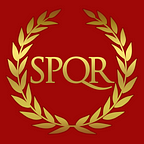Why did an ancient Greek messenger die after a marathon race?
Two famous ancient Greek historians, Herodotus and Plutarch, told the story of the runner who delivered the news of victory at Marathon to the city of Athens. Herodotus, born a few years after the battle, based his judgment on eyewitness accounts. He claimed that the day before the battle a messenger, Phidippides, was sent to Sparta with a request for help. He was chosen as a renowned speeder to deliver the following message: “Lacedaemonians! The Athenians ask you to help them and prevent the enslavement by the barbarians of the most ancient city in Hellas. For Eretria already bears the yoke of slavery, and Hellas becomes poorer by one famous city.”
Herodotus does not mention what happened to Fiddipides after he delivered the news of his victory in Athens. However, Plutarch, who lived many years after the events, gives a more detailed account of it. According to his version, a messenger (whom he calls Euclus) ran over 1,240 Greek stadia, including mountainous terrain, in one day to ask the Spartans for help. However, the Spartans refused him, and he returned to Athens to report that the Greeks should win without help. Euclus participated in a battle that lasted six hours and ended in a victory for the Greeks. When he returned to Athens, he was the first to deliver the glad tidings of victory. Euclus died right after he gave the news, not…
